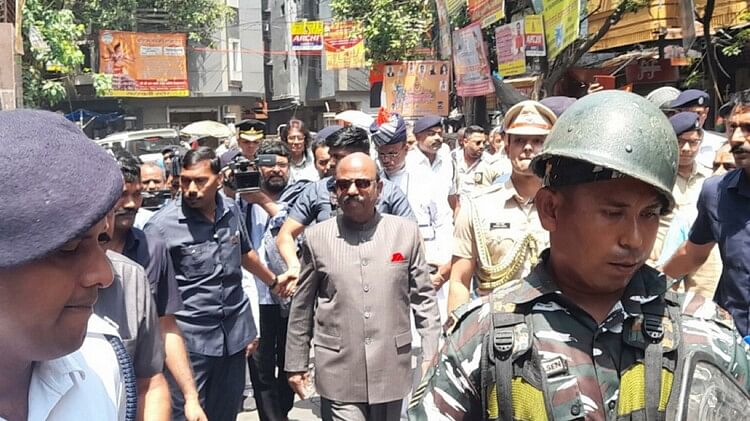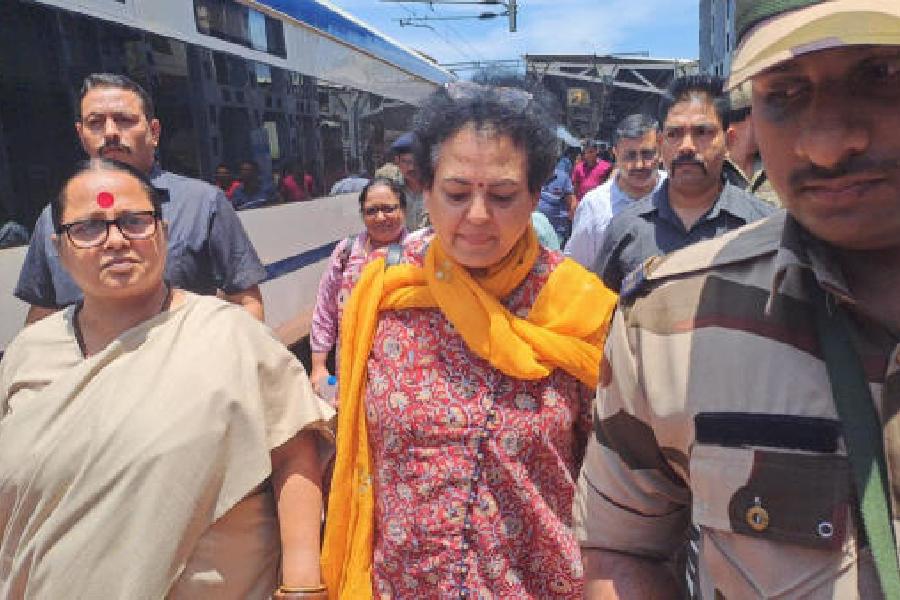MS Shanker
West Bengal is burning. Again. And as always, Chief Minister Mamata Banerjee is pointing fingers at everyone but herself. This time, the blame falls squarely on the Bharatiya Janata Party (BJP) and the Border Security Force (BSF), whom she accuses of orchestrating communal violence in districts like Murshidabad and other border areas. It’s a familiar tactic — deflect, deny, and demonize — but this time, it isn’t working.
The truth is starker and far more disturbing. Communal tensions in the border districts of West Bengal have been simmering for years, driven by unchecked illegal immigration, demographic changes, and a climate of appeasement politics. Mamata’s Trinamool Congress (TMC) has repeatedly turned a blind eye to the growing radicalism in these areas, often protecting vote banks at the cost of social harmony.
Consider the facts. Districts like Murshidabad, Malda, and North 24 Parganas have seen a demographic shift so dramatic that in several border villages, Hindus are now a minority. Despite this reality, Mamata Banerjee issued veiled threats recently, warning these Hindu voters of “consequences” if they did not support her party. What consequences? Is this the language of a constitutional head of a state? Or is it an open endorsement of coercive majoritarianism — only this time, it’s not the majority that’s emboldened.
Her targeting of the BSF — one of the most disciplined and apolitical security forces in the country — is not only irresponsible but dangerous. The BSF has been instrumental in securing the Indo-Bangladesh border, often under hostile circumstances. Accusing them of inciting riots without a shred of evidence is not just reckless — it undermines national security.

Meanwhile, reports from the ground paint a harrowing picture. Governor C.V. Ananda Bose and members of the National Commission for Women visited the riot-hit areas and relief camps where displaced Hindus have taken shelter. Victims recounted chilling accounts of threats and sexual violence, allegedly perpetrated by radicalized elements in minority-dominated areas. Hindu women were reportedly told to submit or face the death of their male relatives. These are not isolated incidents — they reflect an ecosystem of impunity emboldened by political patronage.
The Mamata government’s complicity, whether by action or inaction, is becoming harder to ignore. Time and again, the Calcutta High Court has had to intervene — be it on restrictions placed on Durga Puja immersions, bans on Ram Navami processions, or selective enforcement of law and order in communally sensitive zones. Even as Navratri celebrations were truncated, and Hindu religious rallies blocked from passing through Muslim-majority areas, Mamata’s government maintained a studied silence when Islamist mobs went on a rampage.

This consistent pattern of appeasement is not lost on observers. What Mamata Banerjee once bravely resisted as a firebrand opponent of the CPM’s high-handedness, she now seems to be emulating — except with a more communal twist. The politics of identity have now morphed into the politics of intimidation.
Her critics argue that the unchecked influx of illegal Bangladeshi migrants and even Rohingya Muslims has changed the political and cultural landscape of Bengal. Instead of cooperating with the Centre on verification and deportation efforts, her administration stonewalls, often accusing New Delhi of communal motives. But here’s the contradiction: If Mamata herself admits that illegal migration is a problem, why does her government oppose every attempt to fix it?
In the backdrop of this ongoing crisis, there is growing demand that the Modi government step in more decisively. Invoking Article 356 and imposing President’s Rule is not a decision to be taken lightly, but if the state machinery is either unwilling or unable to protect its citizens, then what alternative remains? Temporary fixes — like setting up BSF camps in riot-hit zones — cannot be a substitute for systemic correction.
Whispers from Delhi suggest that Union Home Minister Amit Shah and Prime Minister Narendra Modi have held high-level consultations, including with the President. Whether this is related to the West Bengal situation or the judiciary’s recent overreach is unclear. What is clear, however, is that Bengal is teetering on the edge.
It’s no longer about party politics or regional rivalries. It’s about upholding the Constitution, safeguarding the rights of every citizen — regardless of religion — and sending a clear message that no state government can play vote-bank politics at the cost of national unity.
Madam Mamata, the question isn’t who is dividing Bengal. The question is: how long can you keep pretending it isn’t you?





